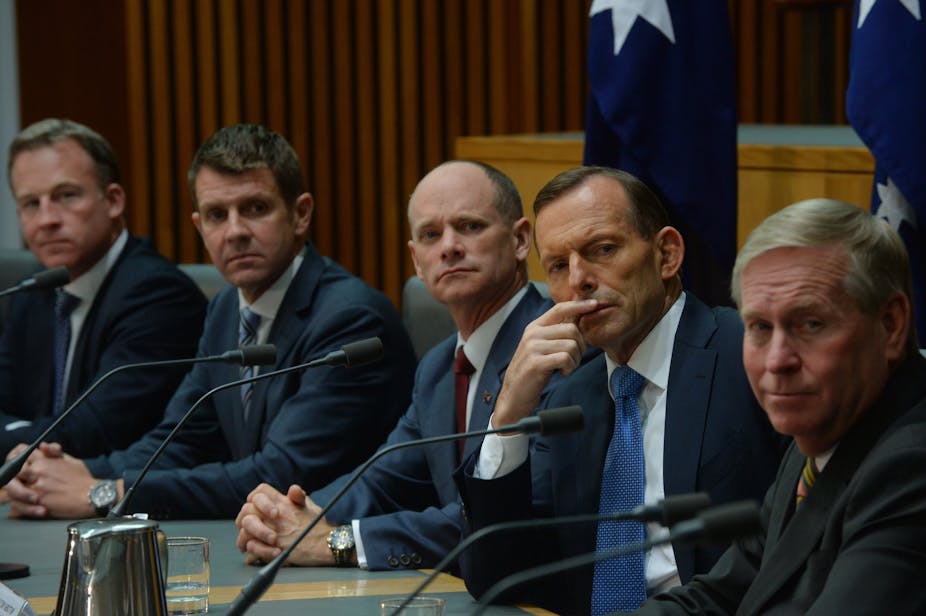The reform of Australia’s federation is under review. In this special series, we ask leading Australian academics to begin a debate on renewing federalism, from tax reform to the broader issues of democracy.
Curtin University’s John Phillimore and Professor Linda Botterill from the University of Canberra argue there needs to be clear rules around the way Commonwealth–State cooperate.
Debate around federalism is often, understandably, dominated by the fiscal relationship between the Commonwealth and the States. However, the position of the States vis à vis the Commonwealth is weak not only because of the vertical fiscal imbalance. Another important factor is the lack of strong, stable and predictable structures of policy cooperation and coordination.
The terms of reference for the federalism White Paper specifically “seek to clarify roles and responsibilities to ensure that, as far as possible, the States and Territories are sovereign in their own sphere”. Arguably, for the federation to function effectively, this should be interpreted to include consideration of the institutional arrangements at the heart of the Commonwealth-State relationship, as well as the financial component.
One approach to reform, which former Labor prime minister Kevin Rudd initially emphasised, is to focus on cooperation between governments, or what is often called “cooperative federalism”. This view recognises that policy complexity and overlap makes some degree of cooperation between governments inevitable if the federal system is to function.
The problem with “cooperative federalism” is what we mean by “cooperation”. There is a scene in an episode of Yes, Prime Minister, in which PM Jim Hacker is upset at one of his Cabinet colleagues. He laments to his private secretary, Bernard Woolley:
Jim Hacker: He’s got to learn to cooperate.
Bernard Woolley: What do you mean cooperate?
Jim Hacker: I mean obey my commands. That’s what cooperate means when you’re Prime Minister.
There are many premiers and state governments who probably feel that this describes the situation in Australia over many decades. So, how might cooperation become real and not forced?

One problem is that in spite of the importance of Commonwealth–State cooperation and coordination in many areas of policy, the Australian constitution is largely silent on how the two levels of government should interact, aside from recourse to the High Court where their laws conflict.
This has caused problems as new policy concerns have emerged and as policy areas that were once seen as primarily local matters are increasingly seen as having a national dimension and hence being of political and policy interest to the Commonwealth.
Since the establishment of the first Ministerial Council in 1934, an array of institutional arrangements has developed to address the problem of cooperation and coordination. These include: heads of government meetings such as COAG – the Council of Australian Governments which comprises the Prime Minister, Premiers, Chief Ministers and the head of the Australian Local Government Association; ministerial councils; intergovernmental agreements; and specific agencies such as Food Standards Australia New Zealand or the National Transport Commission.
The proliferation of these institutions has not always been welcomed, and COAG acted in 1992, 2004 and most recently 2013 to reduce the number of ministerial councils. This has been largely an ad hoc process which has run the risk of leaving important areas of policy involving both levels of government in limbo, and undermining successful examples of cooperation between governments.
The White Paper provides an opportunity to not only address the fiscal challenges of federalism but also the structure and roles of its institutions. At present, key bodies such as COAG and related ministerial councils are essentially meetings, without underlying legislation or enforceable rules.
Legislation to establish COAG and its operating procedures is one option, but at a minimum this could be addressed in the first instance through the establishment of an Intergovernmental Agreement to underpin the operations of COAG which:
- Articulates principles to guide the federation, such as subsidiarity and the need for respect, trust and good faith in negotiations;
- Specifies COAG’s operations, including meeting frequency, agenda-setting and chairmanship; and
- Establishes an independent COAG secretariat.
At the moment, COAG meets as often or as seldom as the prime minister wishes. The PM also sets the meeting agenda and controls the COAG secretariat through the Department of the Prime Minister and Cabinet. An IGA would minimise Hacker-esque approaches to cooperative IGR by providing the states with some certainty around their dealings with the Commonwealth.
It would also go some way to preventing developments such as in the recent federal budget when the Commonwealth reneged on a number of signed funding agreements, refused to hold a COAG meeting despite a request to do so from seven premiers and chief ministers, and abolished the COAG Reform Council without prior reference to the States and Territories.
No-one wants meetings or institutions for their own sake. But without properly working intergovernmental institutions covering the major areas of policy making, operating under effective and fair rules and practices so that governments can be held accountable to each other, then we may get the worst of both worlds – a lack of clarity in terms of roles and responsibilities, and ongoing opportunistic behaviour by both the Commonwealth and the States in dealing with each other on important national issues.
Renewing Federalism is in partnership with the Australian National University’s Tax and Transfer Policy Institute at the Crawford School of Public Policy and with the University of Melbourne School of Government.
Our Renewing Federalism series will culminate in a symposium on October 2 at ANU. If you would like to attend the event, please see event details and RSVP here.
Read more in the series here

